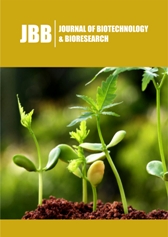- Submissions
Abstract
Journal of Biotechnology & Bioresearch
The Link Between Childhood Poverty and Metabolic Syndrome: An Indian Scenario
-
Open or CloseSwarup K Chakrabarti1* and Dhrubajyoti Chattopadhyay1,2
1HP Ghosh Research Center, Kolkata, India
2Sister Nivedita University, India
*Corresponding author:Swarup K Chakrabarti, HP Ghosh Research Center, HIDCO (II), EK Tower, New Town, Kolkata, West Bengal 700161, India
Submission: August 28, 2023;Published: September 25, 2023

Abstract
Acute poverty has a severe impact on children in India, where 30% of all children living in extreme poverty worldwide are born. The truth is that 36% of the world’s poorest children reside in South Asia, with India hosting 84 percent of this population. Besides, more than 45 million children in India are affected by the COVID-19 pandemic’s extreme poverty, which accounts for 30% of all children worldwide. Childhood poverty, which is frequently associated with accelerated aging, may have a significant impact on immune system function, which may lead to dysregulation of inflammatory processes in response to foreign substances and a change to unfavorable proinflammatory states. The term “Metabolic Syndrome” (MetS) describes a group of disorders, such as high blood pressure, high blood sugar, insulin resistance (IR) and elevated adiposity, that frequently co-occur and increase the risk of stroke, type 2 diabetes (T2DM), and cardiovascular diseases. An extensive incidence of IR among children exhibiting MetS was found in an Indian cross-sectional investigation. Over time, the scientific community has become more cognizant of the critical role the immune system plays in maintaining systemic metabolic homeostasis. The maintenance of excellent “metabolic health” over the course of a person’s life depends critically on this interaction between the immune and metabolic systems. Two major stress-signaling pathways that contribute to immunological dysregulation in children during poverty are the Autonomic Nervous System (ANS) and the Hypothalamic-Pituitary-Adrenal (HPA) axis. Prolonged HPA axis activation brought on by poverty-induced stress can directly contribute to the pathophysiology of T2DM. Early traumatic events and lifestyle modifications induced by poverty may also have an impact on how quickly telomeres shorten throughout the course of a person’s lifespan. Telomere shortening brought on by immune system aging slows down T- and B-cell population renewal and clonal proliferation, aggravating MetS. Early-life nutrition results in long-lasting alterations in DNA methylation that have an effect on a person’s health and aging-related disorders throughout their lifetime. In order to further validate the causal relationship between these crucial intersecting events that the article seeks to capture during poverty, additional research will be needed to collect data on the prevalence of MetS, immunological parameters, including retrospective and prospective longitudinal studies in larger Indian cohorts.
 a Creative Commons Attribution 4.0 International License. Based on a work at www.crimsonpublishers.com.
Best viewed in
a Creative Commons Attribution 4.0 International License. Based on a work at www.crimsonpublishers.com.
Best viewed in 







.jpg)






























 Editorial Board Registrations
Editorial Board Registrations Submit your Article
Submit your Article Refer a Friend
Refer a Friend Advertise With Us
Advertise With Us
.jpg)






.jpg)














.bmp)
.jpg)
.png)
.jpg)










.jpg)






.png)

.png)



.png)






